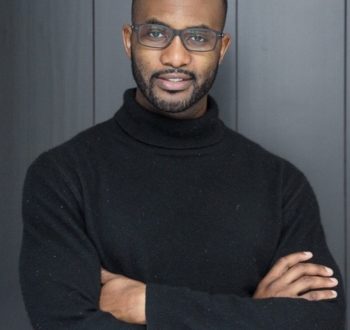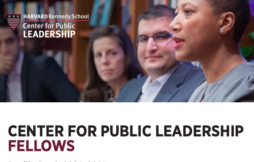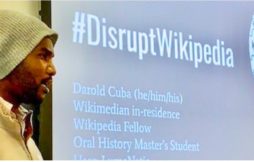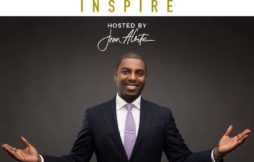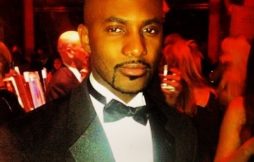Categories
Specialties
- Founder - #HackingRacism & #MappingFreedom Initiatives
- Public Policy in Media
REQUEST Darold's AVAILABILITY
Biography
Darold is a social impact innovator and entrepreneur, a Center for Public Leadership Fellow at the Harvard Kennedy School, the Ivy League’s first Wikipedia Fellow, and the inaugural Oral History Fellow at the Washington National Cathedral. With a background at the intersections of media, politics and business, his work has spanned disciplines of journalism, oral history, theater, film, tv, art, advertising/PR/marketing, communications and emerging technologies.
He founded #HackingRacism at the Columbia Business School’s Innovation and Entrepreneurship Incubator (IE@Columbia), ℅’17 to help people dismantle systemic white supremacy and institutional racism in their everyday lives. That in turn birthed The #MappingFreedom Project, the public-facing, crowd-sourced, open knowledge, open access, open source, knowledge parity, information equity, digital & emerging technology initiative which interactively documents and digitally maps all of the “freedom colonies” on the planet. (Since the inception of Western colonialism, the targeted peoples escaped the terrorism of Racialized Inheritable Phenotypic Hypodescendent One-Drop – Chattel Atlantic Slave Trade Economy (RIPHOD-CASTE) – his terminology – slavery, indigenous mass genocides, Jim Crow, Black Codes, and other human rights abuses, creating their own “colonies of freedom” and successfully protecting these “safe spaces.”) Powered by Google’s GIS technology, this interactive map seeks to also digitally recreate these communities at varying stages and times in their histories. #HackingRacism also birthed #MappingFreedom’s counterpart, the International Association of Freedom Colonies (iAFC), and its Oral History Archives, to lobby and advocate for conservation, restoration and preservation best practices for this “international phenomenon of freedom colonies.”
#HackingRacism also birthed #DisruptWikipedia, which Darold co-founded with the Columbia University and Barnard College libraries (where he was the first Wikimedian-In-Residence, as well as the first Wikipedia Visiting Scholar at the Columbia CGUI Lab at the School of Engineering And Applied Sciences (SEAS)) to “disrupt, dismantle and eliminate the settler colonial bias causing the digital and tech colonialism on the world’s largest site for knowledge” and is incubating the WikiHBCU/DIO initiative to establish a “wiki presence” (Fellow, Resident and/or Scholar) at every “historically ‘black’ college, university, department, institution and organization on the planet” at the Washington National Cathedral, where he leads the Cathedral’s inaugural video oral history project “Thus Saith Our Souls: The African-American Experience in the Episcopal Church” (#AAinTEC) and serves on the Racial Justice Taskforce. Launching on Juneteenth, this inaugural oral history project from the nation’s cathedral explores the history of those branded “black” in the country’s oldest colonial religion, and its journey to reconcile its history in a forward facing process of reconciliation and reparations. Cuba also serves on the New York City’s Cathedral of St. John the Divine’s Reparations and Racial Reconciliation Committee, and Trinity Church Wall Street’s Achieving Racial Equity Commission.
An alumnus of The New York Times, VICE, TriBeCa Enterprises, and Fox Home Entertainment, his 2015 VICE Feature of the Year “The Loud Fight Against Silicon Valley’s Quiet Racism: How Tech Became A Civil Rights Battleground” explored the efforts of people and organizations working to eradicate racism and other such settler colonial bias/tech colonialism issues in the tech industry. He wrote the NYT’s “Not Forgotten” columns on Emmett Till & Medgar Evers, was a data journalist on the first Trump/Clinton debate, interviewed Wu-Tang’s founder RZA (Robert Diggs) live-scoring his favorite kung-fu film, and is the film producer of its 2017 College Scholarship Program.
His work actively dismantles the settler colonial narrative, perspective, lens and worldview of the “colonizer culture” – especially the effects of digital/tech/data colonialism – through a process of decolonization and indigenization. This process includes disrupting and eliminating the “white gaze” (Morrison), the “white imagination” (Rankine), and the “colonized mind” (Fanon) of the “racecraft” (Fields) that create these institutional and systemic outputs that fail the “DuVernay Test” (Dargis) in the first place. Darold speaks and presents around the world on a variety of issues connected to his work, and also produces, directs and acts in independent projects. He is currently a Mid-Career Master of Public Administration (MC/MPA) candidate at Harvard. He holds an MA in Oral History from Columbia, and a BA in Theater from Temple.
